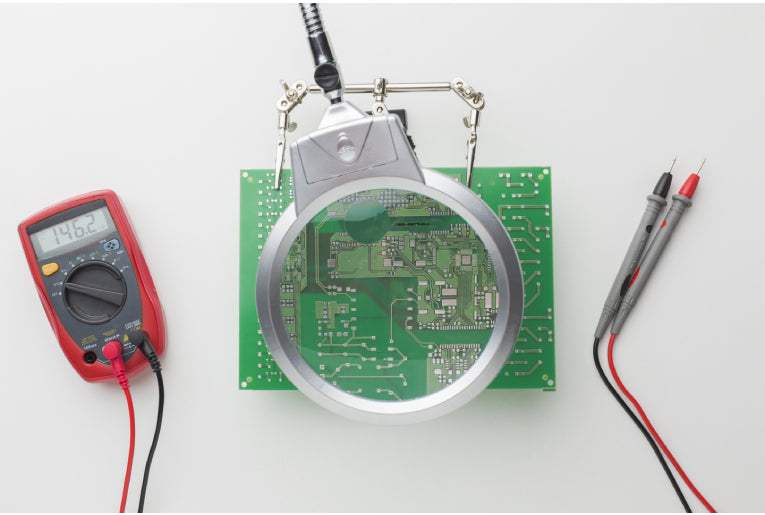Distinguishing a Medical Device Quality Management System from Other QMS Tools: What Sets It Apart?

In the ever-evolving landscape of healthcare and medical device development, the need for stringent quality management has never been more critical. The development and manufacturing of medical devices demand an unwavering commitment to safety, reliability, and compliance with regulatory standards. To achieve this, organizations in the medical device industry rely heavily on Quality Management Systems (QMS). However, not all QMS tools are created equal, and distinguishing a Medical Device Quality Management System from other QMS tools is essential for success in this highly regulated field.
In this blog, we'll delve into the intricacies of a Medical Device Quality Management System, exploring what sets it apart from generic QMS tools. We'll discuss the unique challenges and requirements that medical device development presents and how an industry-specific QMS solution is tailored to meet these needs.
The Importance of Quality Management in Medical Device Development
Before we dive into the specifics of Medical Device Quality Management Systems, let's first understand why quality management is paramount in this field. Medical devices play a crucial role in healthcare, from simple diagnostic tools to complex life-saving devices. Ensuring their safety and effectiveness is not just a matter of compliance but a matter of life and death.
- Patient Safety: The primary concern in medical device development is patient safety. Any defect or malfunction in a medical device can have severe consequences, and even minor errors can lead to significant harm.
- Regulatory Compliance: The medical device industry is heavily regulated by agencies such as the FDA (U.S. Food and Drug Administration) and the EU MDR (European Union Medical Device Regulation). Compliance with these regulations is mandatory to bring a product to market.
- Reputation and Trust: The reputation of a company in the medical device industry depends on the quality and reliability of its products. A single quality-related incident can erode trust and have long-lasting consequences.
- Cost Efficiency: Quality issues in medical device development can be extremely costly. Recalls, lawsuits, and rework can lead to substantial financial losses.
Given these considerations, it becomes evident that a specialized QMS is essential to meet the unique demands of medical device development. Now, let's explore what sets a Medical Device Quality Management System apart from generic QMS tools.
Tailored Regulatory Compliance
One of the most significant distinctions between a Medical Device Quality Management System and a generic QMS is the level of regulatory compliance support. Medical devices are subject to stringent regulations, and non-compliance can result in product recalls, legal actions, and even criminal charges. Therefore, a dedicated Medical Device QMS is designed to facilitate adherence to these regulations seamlessly.
- FDA and EU MDR Compliance: Medical Device QMS solutions are specifically engineered to help organizations navigate the complex regulatory landscape. They provide templates, workflows, and documentation controls tailored to meet the requirements of agencies like the FDA and EU MDR.
- Audit Trails and Traceability: Tracking and documenting every step of the development process is crucial in medical device development. Medical Device QMS systems offer robust audit trails and traceability features to ensure transparency and accountability.
- Change Control: Medical devices often undergo design changes and updates. An industry-specific QMS includes comprehensive change control processes to manage modifications while maintaining regulatory compliance.
Risk Management Integration
Risk management is central to medical device development. Identifying, assessing, and mitigating risks is a continuous process, and a Medical Device QMS incorporates risk management seamlessly into its framework.
- Risk Analysis Tools: These systems include tools and methodologies specific to risk analysis in medical devices, such as Failure Modes and Effects Analysis (FMEA) and Fault Tree Analysis (FTA).
- Integration with Product Lifecycle: Medical Device QMS solutions align risk management activities with the entire product lifecycle, ensuring that risks are continually assessed and mitigated as the product evolves.
- Compliance with ISO 14971: ISO 14971 is the international standard for medical device risk management. A Medical Device QMS is designed to support compliance with this standard.
Document and Design Control
Document control and design control are critical components of medical device development, and a Medical Device Quality Management System is equipped to handle these with precision.
- Document Management: These systems provide robust document control capabilities, ensuring that all documentation is up to date, accessible, and version-controlled.
- Design History File (DHF) Management: The DHF is a crucial document in medical device development. A Medical Device QMS includes features for managing DHFs, which are necessary for regulatory submissions.
- Design Verification and Validation: Industry-specific QMS solutions include tools and workflows for design verification and validation, ensuring that the product meets its intended use and design specifications.
Supplier and Vendor Management
Medical device development often involves collaboration with suppliers and vendors. A Medical Device Quality Management System acknowledges this and offers features tailored to manage these relationships effectively.
- Supplier Audits: These QMS solutions facilitate supplier audits, ensuring that suppliers adhere to the same quality standards and regulatory requirements.
- Vendor Risk Assessment: Robust vendor risk assessment tools help organizations evaluate and mitigate risks associated with external partners.
Post-Market Surveillance
The responsibilities of medical device manufacturers do not end with product launch; post-market surveillance is equally critical. A dedicated Medical Device QMS addresses this phase comprehensively.
- Adverse Event Reporting: These systems include features for adverse event reporting, as mandated by regulatory agencies, to ensure that any issues with the product are promptly addressed.
- Complaint Handling: Efficient complaint handling processes are essential to maintaining product quality and safety. Medical Device QMS solutions streamline complaint management.
- Post-Market Surveillance Analytics: Industry-specific QMS solutions often include analytics tools to identify trends and potential issues in the post-market phase.
Training and Competency Management
Ensuring that personnel are adequately trained and competent in their roles is essential in medical device development. A Medical Device Quality Management System goes beyond generic training modules and offers specialized training and competency management features.
- Role-Based Training: These systems allow organizations to assign role-specific training, ensuring that employees are trained for their specific responsibilities.
- Competency Tracking: Medical Device QMS solutions include competency tracking and assessment tools to ensure that employees possess the necessary skills for their roles.
In the world of medical device development, a one-size-fits-all approach to Quality Management Systems simply does not suffice. The unique challenges, stringent regulations, and critical importance of patient safety demand a specialized solution. A Medical Device Quality Management System distinguishes itself from generic QMS tools by offering tailored regulatory compliance, integrated risk management, document and design control, supplier and vendor management, post-market surveillance, and training and competency management.
Investing in a Medical Device QMS is not just a matter of compliance; it's a commitment to ensuring the highest levels of safety and quality in the products that impact people's lives. In an industry where precision and compliance can make the difference between life and death, choosing the right QMS is not just a business decision; it's a moral imperative.
Leave a comment (all fields required)
Comments will be approved before showing up.


